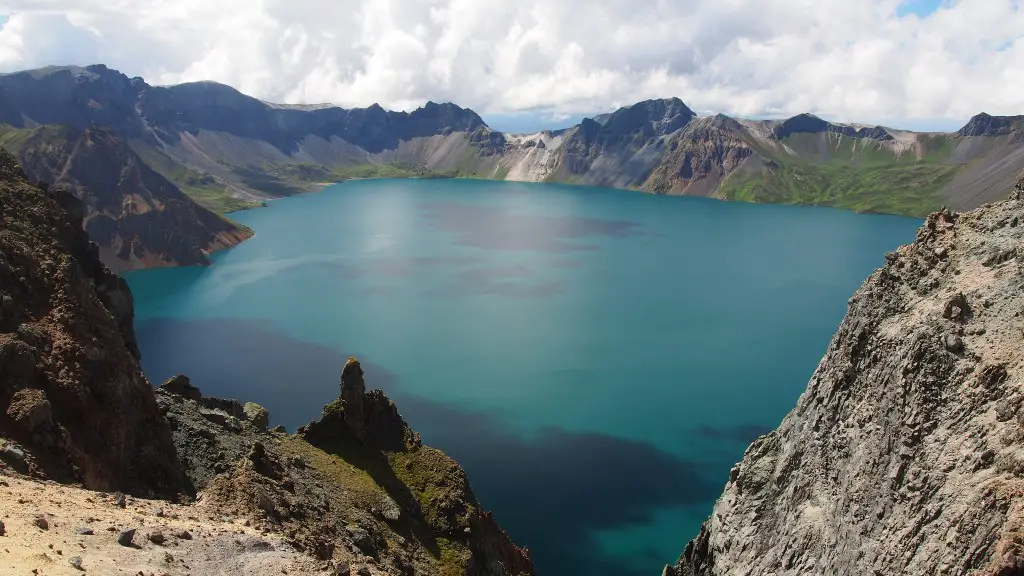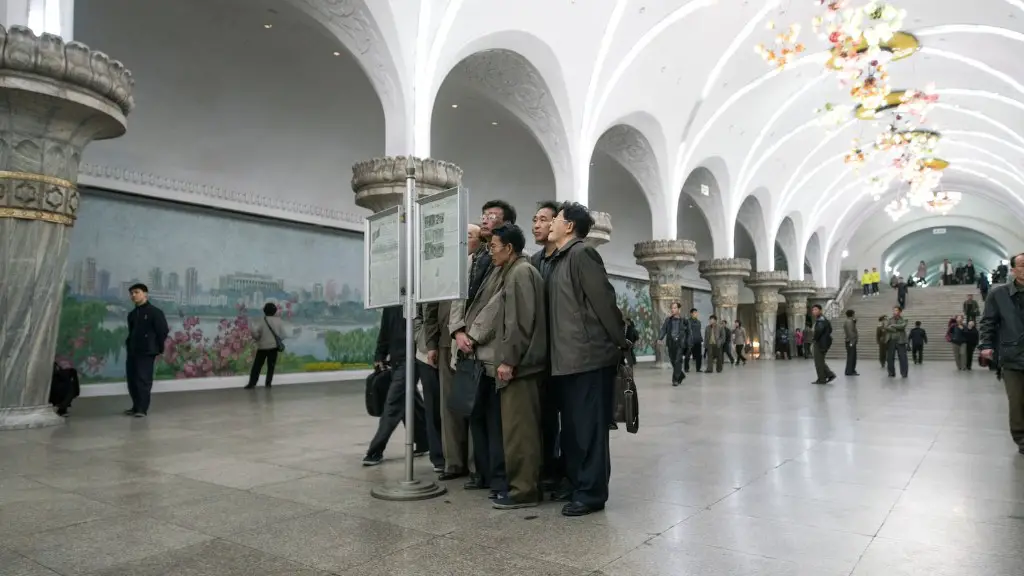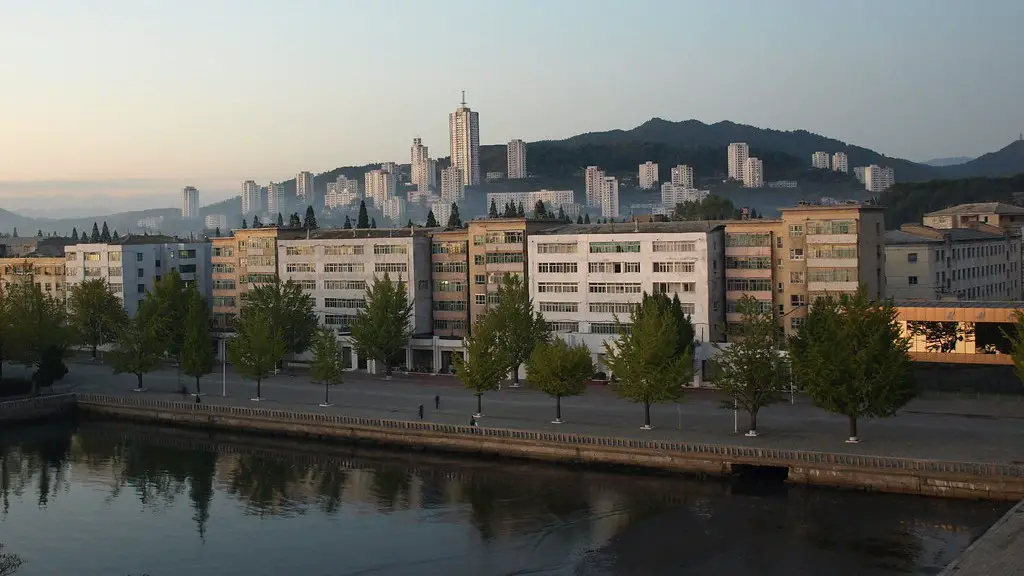Discussion of Politics and Policies
North Korea is a closed country and its people have been living under a firm grip of government control and restrictions on freedom, which has resulted in a unique authoritarian system and a politically charged environment. The country’s policies, which are constantly changing and unpredictable, are strongly isolated from the world and the international community. With regard to politics, the North Korean government places a great emphasis on nationalism and the legitimacy of its ruling party, the Workers’ Party of Korea. This party has been in power since 1948 and holds the highest authority in the country.
The North Korean government has a long-standing practice of not allowing political opposition and open criticism of its policies. It has also strengthened its control over the media, censoring and limiting the news, information, and internet access of its citizens. This has also resulted in a largely stagnant economy, a wide income gap, poverty, and deepening sanctions imposed by the international community. As a result, North Korea has become increasingly isolated and secluded from the rest of the world.
The North Korean government has also placed a heavy emphasis on military capabilities, investing a large proportion of the country’s scarce resources into maintaining a strong military presence. A large part of the North Korean population is involved in military training and education. Moreover, the government has conducted multiple military drills and weapons tests to demonstrate its strength.
The intense isolation of North Korea has been a long standing problem for the international community. The UN and other countries have been trying to resolve the problem for many years, but the negotiations have so far failed to facilitate meaningful dialogue and develop sustainable solutions. The US in particular has sought to engage in direct diplomacy with North Korea, but their efforts have not been successful thus far. This has contributed to the growing mistrust between the two nations and made it even more difficult for the world to understand and address the situation in North Korea.
Family and Social Dynamics
In addition to the political environment, North Korea’s social dynamics are heavily restricted. The government’s personality cult of leader Kim Jong Un and his predecessors, the Kim family, is deeply embedded into North Korean society. In this context, North Korean citizens are expected to follow strict rules, display loyalty and pay tribute to the dynasty. This has caused a generation of young people to grow up in an environment of fear and obedience.
Meanwhile, family structure and dynamics have also been greatly affected by repressive policies. Marriages are often arranged and one parent is usually tasked with the responsibility of raising the children and managing the household. Additionally, many families are divided into nuclear and extended family units, further reinforcing the government’s authority over individual citizens.
The country’s social environment has been largely shaped by state-controlled education, which is heavily dominated by indoctrination and the celebration of the Kim dynasty. This has resulted in a lack of understanding of the outside world and an inability to interact positively with outsiders, further contributing to its isolation.
Moreover, social life in North Korea is heavily supervised by the government. People are required to adhere to strict rules, such as not being able to talk to strangers or take part in political activities. In addition, the government monitors people’s movement and communication, further restricting their activities.
Impact on Human Rights
North Korea’s closed status has had a significant impact on its citizens’ human rights. This includes the right to assemble peacefully, the right to access information, freedom of press and expression, the right to free and fair elections, freedom from arbitrary detention and imprisonment, among others.
Furthermore, as a result of the government’s isolationism, North Koreans have limited access to legal or social support, leaving them vulnerable to human rights abuses such as brutality, torture, and forced labor.These problems have been highlighted by NGOs and international organizations such as Amnesty International and Human Rights Watch, who have long criticized the North Korean government for its human rights violations.
Moreover, North Korea is the only country in the world that still implements the death penalty for political crimes. This has been a long standing problem in the country, and while executions are declining, they remain high. This continues to be a major concern for the international community.
Economic Reforms and Impact
The North Korean government has made a series of economic reforms, aimed at increasing its economic competitiveness and attracting more foreign investment. This includes opening up select trade markets, allowing certain businesses to operate, and reforming its currency.
However, these reforms have so far failed to generate tangible results. This is due to a lack of international support and inadequate government policies, leading to North Korea’s economic malaise. The government has also been unable to address key economic issues such as poverty, inequality, and unemployment rates. In addition, since the reform policies have been implemented without public consultation, there has been much resentment and opposition from the public.
Furthermore, the international community has been unable to provide much support to North Korea, as it has refused to open its borders and engage in meaningful trade negotiations. This has left much of the North Korean population in poverty and food insecurity, exacerbating the already difficult living situation and making it even more challenging to improve North Korea’s economic outlook.
Rise of Technology and Social Media
In recent years, access to technology and social media has been growing in North Korea. These platforms are increasingly providing North Koreans with an alternative source of information to the heavily censored and state-run media. This has allowed citizens to gain access to insights from outside the country, which has helped to increase public awareness of international affairs and world events.
Furthermore, technology and social media have proven to be a valuable tool for communication and coordination within North Korean society, giving people an avenue to organize protests, engage in peaceful discourse, and spread information. This is having a major impact on North Korean society, both in terms of increased freedom of expression and access to information.
However, access to technology and social media is still heavily restricted and liable to the government’s censorship and surveillance. This has resulted in North Koreans continuing to be largely in the dark as to what is happening both inside and outside the country.
Conclusion of a Closed Regime
North Korea is a closed country that has been facing severe economic, social and political problems for many years. Its isolationist policies and oppressive regime have resulted in a lack of freedom and human rights for its citizens, as well as economic stagnation and poverty. The government has also failed to address the country’s key economic issues, and its reform efforts have had limited success.
However, with increased access to technology and social media, North Koreans have been able to gain greater insight into the outside world, giving them an avenue to spread information and organize protests. This has been an important step in the fight for greater freedom and rights for the citizens of North Korea.




